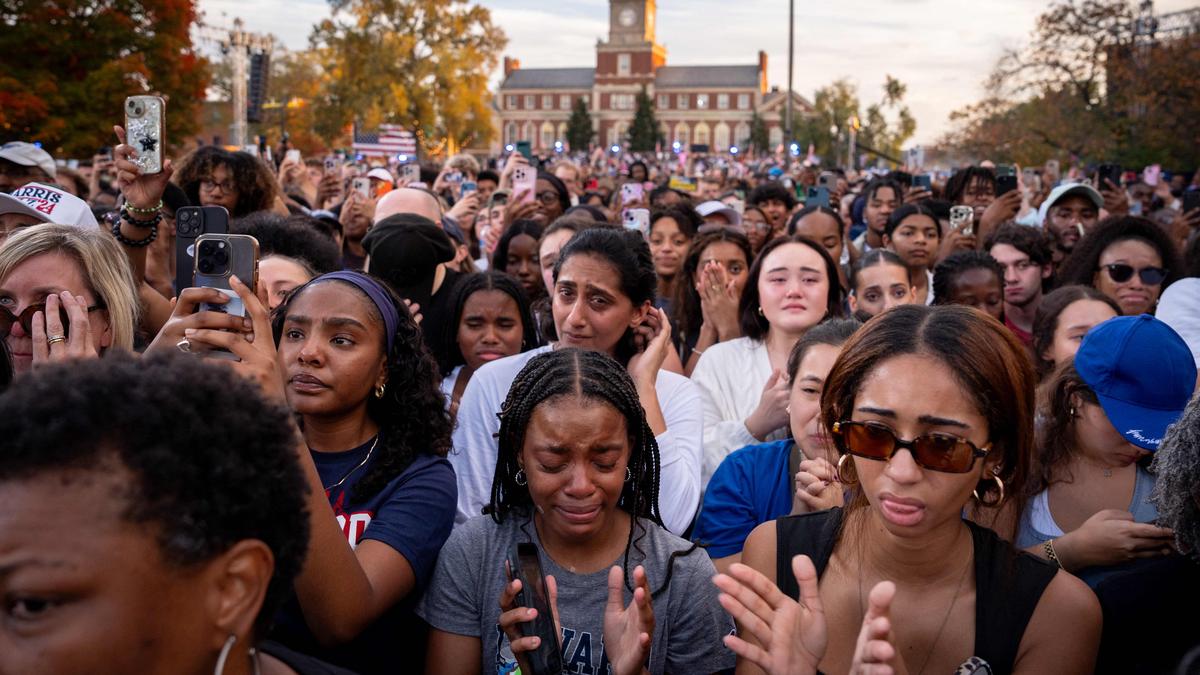
A 2024 election result that leaves many astounded Premium
The Hindu
The recent U.S. presidential election has clearly exposed democracy’s vulnerabilities, sparking concerns about its effectiveness when voters choose leaders with tainted records
“Since Plato’s Republic 2,300 years ago, philosophers have understood the process by which demagogues come to power in free and fair elections, only to overthrow democracy and establish tyrannical rule. The process is straightforward, and we have now just watched it play out.” — Jason Stanley, ‘The End of US Democracy Was All Too Predictable’.
India and the United States, two of the world’s most prominent democracies, are facing significant challenges. India, despite being the most populous democracy, struggles with systemic issues that hinder its ability to function fairly and freely.
On the other hand, the U.S., the most prosperous democracy, guarantees its citizens life, liberty, and the pursuit of happiness, but still grapples with issues of race, religion, gender, and sexual orientation that undermine the true spirit of democracy. The recent U.S. presidential election has clearly exposed democracy’s vulnerabilities, sparking concerns about its effectiveness when voters choose leaders with tainted records.
Donald Trump’s polarising personality may have captured the headlines, but it is the American electorate that has propelled him to victory. According to Pew Research Center, white voters without a bachelor’s degree were more likely to associate with the Republican Party, with 63% identifying as Republicans. In comparison, 33% would align with the Democratic Party. This educational divide has become more pronounced over the past two decades, with white voters without a college degree favouring the Republican Party and those with a college degree moving toward the Democratic Party.
Mr. Trump’s 2024 presidential campaign visibly resonated with millions, securing him another term in office. This outcome can be attributed to several factors, including his ability of creating a multi-ethnic working-class coalition, which proved successful as he made strides among Latinos and African-Americans, especially men. This raises important questions about the values and the priorities of the American people, and whether they are willing to overlook Mr. Trump’s controversies in favour of his policy agenda.
The stakes of the 2024 U.S. election could not be higher, especially its make-or-break moment for American democracy. Trump’s return to power has sent jitters across the globe, and for good reason. Many countries are anxious about the potential implications of his presidency, particularly when it comes to international relations and global stability. Within the U.S., non-white minorities, legal settlers, African-Americans, and undocumented immigrants are bracing themselves for the impact of hard right-wing policies driven by nationalist sentiment. The uncertainty surrounding the citizenship status of newborn children is a significant concern. The potential consequences of his presidency on global relations, domestic policy, and marginalised communities are indeed significant.
Moreover, we are witnessing a disturbing global trend where even robust democracies are buckling under authoritarian pressure. Hungary, once a beacon of democratic success in the post-Communist world, has evolved into the European Union’s sole absolutism in just over a decade. Countries such as Turkey, Israel, or South Asian democracies have seen authoritarian tendencies rise over the years; 37 out of 104 democracies worldwide have experienced significant relapse since 2016. The red flags are clear: wearing away of democratic institutions, manipulation of information, and the rise of acrimonious politics. Experts warn that democratic decline is often incremental, with autocratic leaders exploiting democratic institutions to consolidate power.











